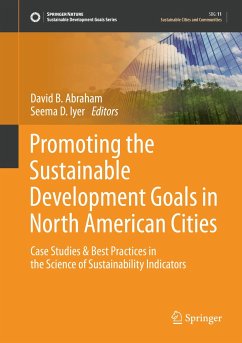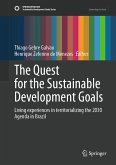This volume presents North American best practices and perspectives on developing, managing and monitoring indicators to track development progress towards the Sustainable Development Goals (SDGs) in local communities and cities. In 4 main sections, the book presents and frames the many ways in which community indicator programs are either integrating or retooling to integrate the SDGs into their existing frameworks, or how they are developing new programs to track and report progress on the SDGs. This is the first volume that focuses on SDG adoption within the context of North Americans cities and communities, and the unique issues and opportunities prevalent in these settings. The chapters are developed by experienced academics and practitioners of community planning and sustainable development, and will add broad perspective on public policy, organizational management, information management and data visualization. This volume presents a case-study approach to chapters, offering lessons that can be used by three main audiences: 1) teachers and researchers in areas of urban, regional, and environmental planning, urban development, and public policy; 2) professional planners, decision-makers, and urban managers; and 3) sustainability activists and interested groups.
Dieser Download kann aus rechtlichen Gründen nur mit Rechnungsadresse in A, B, BG, CY, CZ, D, DK, EW, E, FIN, F, GR, HR, H, IRL, I, LT, L, LR, M, NL, PL, P, R, S, SLO, SK ausgeliefert werden.









